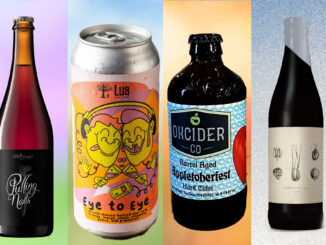
Bartenders know that getting a frothy head on a glass of beer that they pour to a customer is something that requires skill and is almost an art form. Apparently, getting a nice frothy head on a drink is something that involves science as well. Scientists at the University of Manchester have taken an interest in beer foam as well. They are now looking into how foam such as that found in a glass of beer is formed, why it lasts for a brief time, and what compounds are responsible for the foamy behavior.
The scientific community actually knows what generates foam in a pure substance such as water. We have probably seen foam occurring naturally in the sea and in streams. The real question is, how does foam form and last in liquids such as beer that contain many different additives in addition to water.
Research on how to be able to control the lifespan of foam has been going on for decades. The University of Manchester research team decided to expand on this research by teaming up with the scientists at the Institut Laue-Langevin in France. This institute has a neutron beam facility that allows scientists to study the way neutrons behave when they are fired at certain liquids, including beer.
The UK researchers studying foam created a liquid similar to beer in its composition. They then fired neutrons at this beer-like liquid and observed the behavior of the molecules found within the beer foam. The researchers were able to come away with some highly insightful information about the properties of foam in the liquids they tested. They found that the way additives in a beer combine together on a bubble of foam determines the lifespan of the foam.
It may have required the use of a world-class scientific facility, but researchers at the University of Manchester have discovered what causes beer foam and what causes it to last as long as it does. The researchers believe that their breakthroughs in foam testing and analysis could eventually lead to the creation of beer products that have a foam that will last until a person downs their entire glass.
Another unexpected benefit of the research into beer foam is that improved foam can be produced in many other areas besides beer. The beer foam research can help chemists create better foaming shampoos, improved laundry detergents, more effective firefighting foams, and better oil-absorbing foams used to clean up after oil spills. Who knew that research into beer foam could lead to applications in fire safety, body care products, and environmental health? That is something worth celebrating and having a glass of beer about.













Leave a Reply
Be the First to Comment!
You must be logged in to post a comment.
You must be logged in to post a comment.